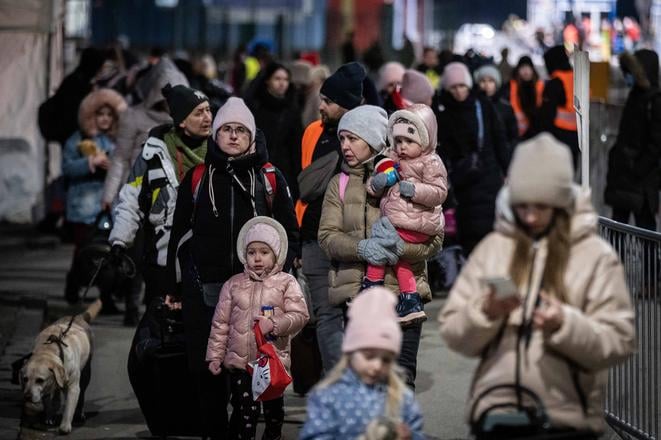According to an amendment to the asylum law approved by MPs on Thursday, June 13 the allowance for accommodating refugees from Ukraine will now be provided for only 120 days from the initial granting of temporary refuge on the territory of Slovakia.
Only defined vulnerable groups of persons will continue to receive the allowance indefintely. The rationale cited for the change was the need for "greater specificity" and to ensure "the sustainability of support for future periods".
"The current model of this support is provided to a wide range of refugees, which is unsustainable in the long term. It is also desirable for refugees to integrate into normal life as soon as possible and contribute to securing basic necessities from their own resources," explained the amendment's proposer.
Some exceptions
Exceptions will be granted to vulnerable groups of people, some of whom may be eligible to access the allowance without time limit. However, the range of vulnerable persons is being narrowed. Categories will include:
Members of households receiving material need assistance
Persons with severe disabilities.
Seniors aged 65 and over.
Children under the age of five.
Parents or individuals caring for a child under the age of five based on a court decision.
Similar rules for the provision of the allowance would also apply to the accommodation of out-of-town refugees in asylum facilities. However, the range of vulnerable persons eligible is narrower and includes only persons aged 65 and over, single parents caring for a child under the age of five, and individuals personally caring for a child under the age of five based on a court decision, and their child under five.
An asylum seeker will have to leave a state asylum facility if:
The refugee's temporary shelter has expired, or the period for accommodation has expired.
The ministry has notified him/her of his transfer to another asylum facility.
The refugee has seriously violated the internal rules of the asylum facility.
Likewise, a one-time allowance and an integration allowance will not be provided to an asylum seeker or a foreigner with supplementary protection if he or she had or has been granted permanent residence or temporary residence in the territory of the Slovak Republic, or temporary refuge in the territory of the Slovak Republic.
Other laws are also being changed
Significant changes have been made to the healthcare law concerning the stay of refugees in Slovakia. Under the new amendments, healthcare providers can no longer refuse to enter into agreements to provide healthcare to selected groups, including refugees, who are not part of the public health insurance system. "The reason is that these individuals, despite being protected by special laws, face issues in receiving care from general practitioners," explained the government.
In response to the challenges faced by refugees and other non-participants in the public health insurance system, the health insurance law has been amended to address the problem of covering healthcare costs for these groups.
The tourism support law has also seen changes, with the removal of the provision that previously regulated the accommodation allowance for refugees under the Transport Ministry's jurisdiction.
Adjustments to the education law will now permit school principals to remove a student from the register if the student requests to leave due to departing Slovakia or if the student is not attending classes and cannot be contacted.


 The Vyšné Nemecké border crossing between Slovakia and Ukraine, pictured in March 2020 following the full-scale Russian invasion of Ukraine on 24 February 2022. (source: Jozef Jakubčo)
The Vyšné Nemecké border crossing between Slovakia and Ukraine, pictured in March 2020 following the full-scale Russian invasion of Ukraine on 24 February 2022. (source: Jozef Jakubčo)